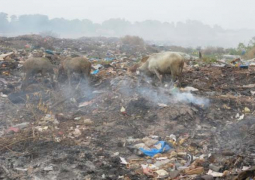How terrible it is for both the authors of the stories, and those who have to read them on a regular basis.
We are yet again referring to what seems like the increasing number of cries for help that the journalists of all Gambian newspapers write, and readers read, about people seeking monetary aid to travel overseas for medical treatment.
The process is a difficult one, to say the least, and the costs involved are simply beyond the means of most people.
There are a number of issues which must be addressed though.
Firstly, is the process and costs involved in securing a medical report from the Edward Francis Small Teaching Hospital.
This process can take up to one month, owing to the layers of bureaucracy involved. When a person or child is seriously ill, a one-month delay in securing a medical report can simply be a matter of life or death.
The time involved in securing a medical report must be reduced.
However, even when the family of the sick individual manages to secure the money and the medical report, there then arises the issue of funding the trip.
The costs involved can be extremely high, but, of course, nobody wants to see their loved one die, and so they will stop at nothing to raise the money.
One of the ways people try to gather money is through the media and, as a result, we can get some idea of the number of people in this desperate situation.
Many people will ask: Why there is not better medical treatment available in The Gambia?
Why must our citizens be forced to beg for help in the newspapers in order to raise the necessary funds to travel abroad for life-saving treatment?
These are very valid questions, and questions which must be answered and addressed.
If they are not, our newspapers will continue to be filled with heart-breaking stories of people who are trapped in life and death situations, and depending on the generosity of others to save them.
It would, of course, be unrealistic to expect there to be a simple, quick fix solution to this issue, but we must see more direct, positive action on the issue from the government.
Perhaps, as in countries with health insurance and similar social security facilities, a government fund could be established that would allow people to travel, until we have built up the necessary curative services in The Gambia.
Whatever the solution to the problem, we must try to find it soon for the sake of those who face, and who may face this terrible situation in the future.
“When a person is down in the world, an ounce of help is better than a pound of preaching.”
Edward G. Bulwer-Lytton


